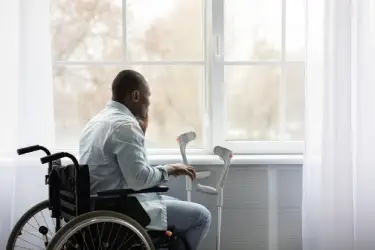Loss of consortium is a legal term that refers to the deprivation of some aspect of spousal relationship. This loss is due to an injury that prevents the normal functioning of a marriage. The spouse may be able to seek compensation for their damages. Let’s look at the loss of consortium after an accident and gain a working knowledge of what needs to be done.
Loss of consortium is a type of damage that can be awarded to a spouse of an injured person. It is also called loss of companionship or society. The basis for the claim is that they have suffered a loss of love, affection and companionship as a result of the defendant’s actions. To recover damages for loss of consortium, the spouse’s attorney must prove that he or she had a close relationship with the injured individual before the accident.
Can a Loss of Consortium Claim Be Filed if the Spouse Has Died?
Yes and no. In New York State, a loss of consortium claim is valid during the period between injury and death. This period is frequently part of a survival action, a claim that exists alongside a wrongful death lawsuit. A survival action is a personal injury claim filed on behalf of the decedent. This claim includes non-economic damages such as loss of consortium. Loss of consortium cannot be part of a wrongful death lawsuit.
Proving Your Case for Loss of Consortium
To recover damages for loss of consortium, the plaintiff’s attorney must first prove that the defendant’s actions caused the spouse to suffer this type of injury. This can be done by presenting evidence of the changes in the relationship since the accident. For example, proving your case for loss of consortium may require evidence that:
- You and your spouse no longer have a physical relationship.
- You and your spouse no longer go on dates or enjoy the same activities.
- You are no longer able to care for your children in the same way as you did before the accident.
In some cases, the plaintiff’s legal representative may also be required to prove that the defendant’s actions caused the spouse to suffer personal losses related to a loss of consortium. This may be done by presenting evidence of:
- Loss of companionship between spouses.
- Loss of the intimacy the couple once shared.
- The cost of therapy or counseling for the spouse.
- The cost of hiring someone to perform activities the injured party can no longer do.
Damages and How They are Determined
The jury decides if the spouse should receive loss of consortium damages. The jury uses specific criteria to do this such as:
- The nature of the spouses.
- The quality of the couple’s social life.
- Whether they enjoyed an active domestic life together.
- Whether the spouses had an active sex life before the accident.
- The spouse cannot have children due to the defendant’s actions.
The court can intercede in the jury’s verdict if it is perceived as excessive. The state does not cap the amount the plaintiff can receive.
Time Limit to File the Claim
In New York, the plaintiff (spouse) has three years to file a loss of consortium claim. This is called a statute of limitation.
How Much Can a Spouse Be Compensated for Loss of Consortium?

Every case differs and this is also true of loss of consortium claims. A dollar value can be complicated because no two people value a family relationship similarly.
However, jurors can look at many factors such as the severity and duration of the loss of consortium.
If your spouse suffered temporary injuries that ultimately healed, you might not even be able to bring a claim, or it could be worth much less. On the other hand, when a severe injury occurs such as trauma to the brain or spinal cord that results in permanent or long-term disability, the value of the loss of consortium claim can be much higher. In these cases, the spouse may be able to recover damages for the loss of love, companionship, affection and sexual relations.
In some cases, the spouse may also be able to recover economic damages such as the cost of therapy or counseling, hiring someone to perform activities the spouse can no longer do or losing emotional support.
If you are considering filing a claim for loss of consortium, it is crucial to speak with an experienced personal injury attorney. An attorney can tell you if you have a valid claim and what options are open to you. The attorney can address pertinent issues and accumulate evidence to support the claim. Evidence is a vital part of any personal injury claim and without it, the case will not be allowed to proceed.


